I spent my whole life making somebody rich
I busted my ass for that son of a bitch
He left me to die like a dog in a ditch
And told me I’m all used up
He used up my labor, he used up my time
He plundered my body and squandered my mind
Then he gave me a pension, some handouts and wine
And told me I’m all used up
They use up the oil, they use up the trees
They use up the air and they use up the seas
But how about you, friend, and how about me
What’s left, when we’re all used up ( Bruce ”Utah” Philips, Used Up )
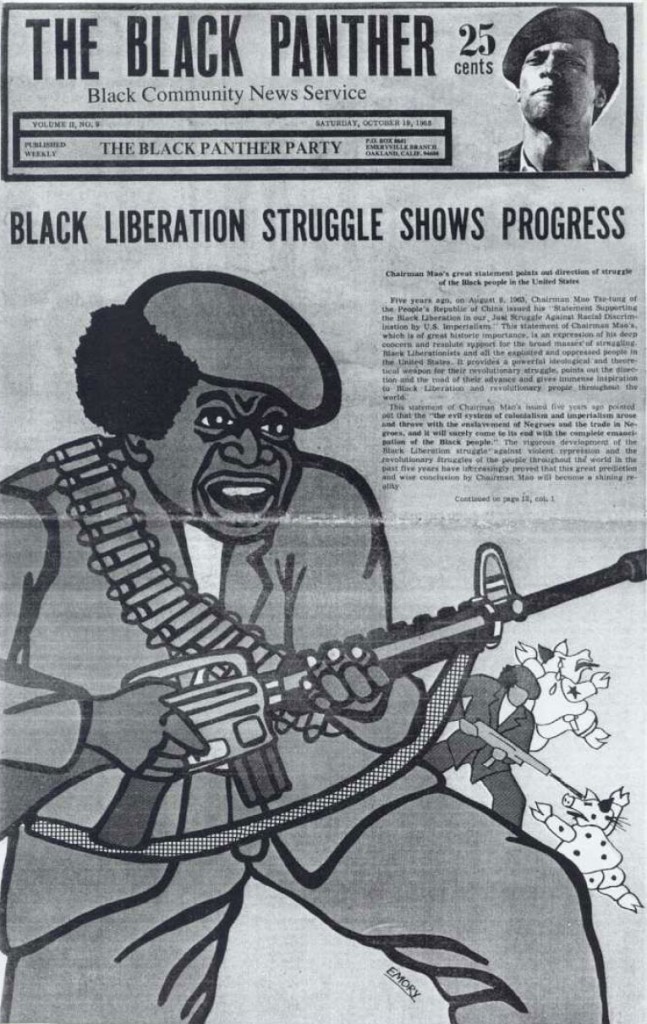
Brad Duncan. ''Although their community ‘survival programs’ delivered clothes and groceries to thousands, the most successful Panther endeavor was their passionate effort to communicate the ideas of the Party and the movement through visual art and Party publications such as The Black Panther newspaper and the Black Panther Intercommunal News Service. Two new books, one collecting front pages and articles from the Party paper and one looking specifically at the art of Minister of Culture Emory Douglas, give an unprecedented look in to these facets of the Black Panther experience.''
Anarchism has been around in two distinct flavors since its inception as an ideology. The contrasting images are that of the secular saint or hermit, the gentle sage , like the white bearded Tolstoy; unworldly and possibly mad, but mad in the manner of a holy fool. The other side of the picture is the anarchist as assassin. An anarchist terrorist with real bombs; an avenging angel of death visiting an exacting payment on a corrupt society with the same self conscious doom of suicide bombers in the Middle East.
As seen in its current form as well as a summit spectacle, the use of violence is not so much for limited ends, but as a form of propaganda, the repudiation of all centralized social organization as a denial of human freedom and spontaneity, the rejection of party hierarchies, left as well as right, are the themes that bring the new, radical versions of the left far closer to the doctrines of nineteenth century anarchism than to ”orthodox” communism. The standard anarchist proposal offers a voluntary federation of self-governing enterprises; the enemy is seen as the ”system” and the classical protest against this machine is undoubtedly anarchism. Anarchism, which by 1920, seemed the deadest of political creeds, an impossible idealism sometimes degenerating into squalid absurdity, spurned by liberals, fascists, and communists alike, is emphatically alive again; echoes of May ’68 have been reawakened with globalization and environmental concerns as a pretext behind the push for power. And this is done very cleverly and seductively even by intellectuals well versed in the idiom:
”The large-scale police raids against summit protesters in May, the 12-kilometre security fence surrounding the location, and the largest mobilisation of German police (17,000) since the end of the Second World War made the headlines. However, there were other critical aspects of the security operation that received scant attention by the media. This includes the deployment of the army and air force against demonstrators, the detention for several hours of demonstrators in metal cages reminiscent of the US prison camp at Guantanamo Bay, and numerous attacks on the right to protest….
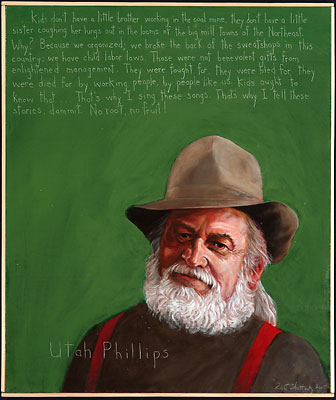
''Bruce “Utah” Philips, who died in May, was a living, singing museum of radical working class culture. Through his songs and stories he connected three generations to the living memory of class struggle martyrs, hobo lore and life, and the radical pacifists and anarchists of the early 20th century. In addition to being a world beloved folksinger and performer Philips spent time as a peace campaigner, a freight train hopper, and a union organizer. Philips will be best remembered for his countless renditions of the songs of Joe Hill and the Industrial Workers of the World (IWW), the Wobblies. Utah Philips was born into a working class Jewish family in Cleveland, Ohio at the height of the Depression. His mother was a CIO organizer and a passion for social justice ran deep in their household. ''
…When one looks at the security operation as a whole, a picture emerges of a gigantic rehearsal for a civil war, an operation that was systematically prepared for over a year and a half, and whose methods and measures either tested or fully overstepped legal boundaries. ( Marius Heuser. World Socialist Web Site)
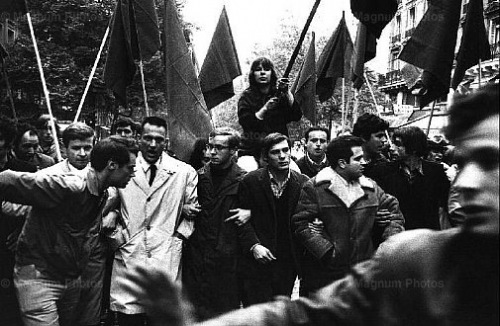
May '68 A successful riot without the Black Bloc. ''This week I’ve been following up on the Greek anarchist riots and while I’m inspired by their moxy, I haven’t been terribly impressed at the men’s fashion I’ve seen. It brings up a serious discussion about anarchist fashion, and one that I will try to pose to my readership as a question rather than a solution, though honestly I’ve had it up to h
with the fucking 99′er black hoodie, so I will probably be a little biased. ''The paradox of the two types of anarchist wearing the same label is not a challenging brain teaser. The anarchist terrorist is in his/her way as stern and puritan a moralist as the anarchist sage. Both are demanding that humanity undergo a nihilistic transformation; a wiping of the slate clean and a fresh start. Moreover, in the means they wish to adopt there is a similarity between the quietist and the activist. For the latter is not an activist in the ordinary sense; they d not hope for any immediate practical gain from his acts; they do not murder in order to seize power or to eliminate some particular human obstacle to their plans. They are, oddly enough, concerned to persuade by example. The victims are almost incidental; sometimes, generally, the anarchist terrorist confines themselves to damage to property.
Their violence can be quite unfocused, because it is essentially a gesture, a symbol and part of a larger aesthetic. Like the pacifist variety of anarchist, their concern is to testify and convert. The name by which this symbolic violence came to be known in the late nineteenth century was the ”propaganda” of the deed.
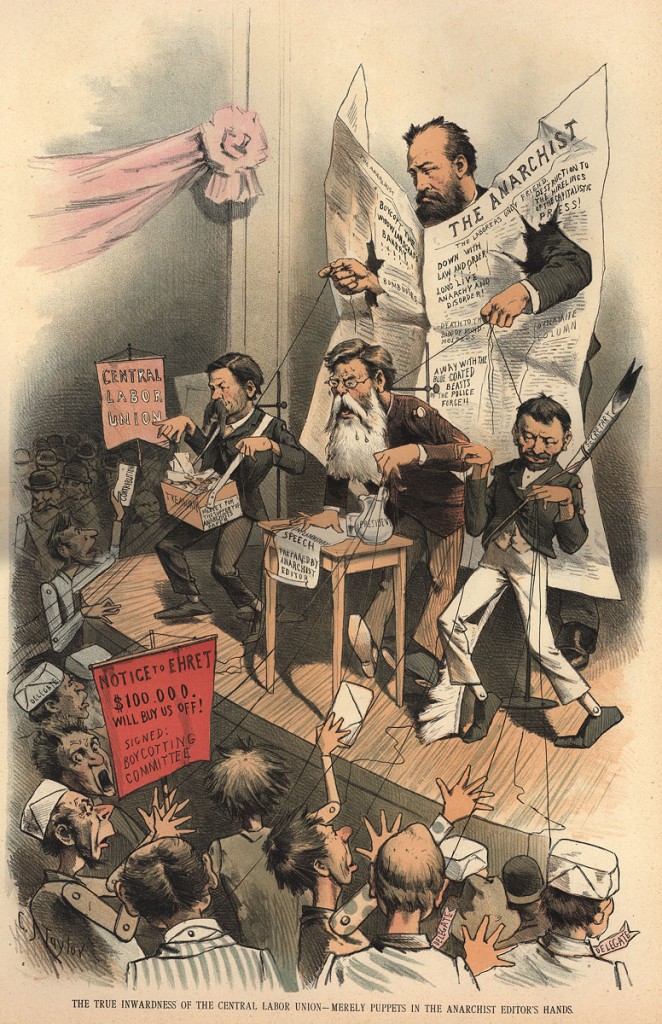
Title: The True Inwardness of the Central Labor Union - Merely Puppets in the Anarchist Editor's Hands Subjects: Labor Unions -- United States Anarchism -- United States Journalism -- United States Political cartoons -- United States
For the anarchists at the G20 summit in Toronto, the results were a bit of a mixed bag in attempting to execute their quixotic strategy. Their own version of the ”surge” seemed to lack the requisite numbers; perhaps the foreign adherents figured Toronto in June is still street hockey, tuques and mittens; they just didn’t seem to have the troops to execute the manifest destiny of the movement. Anarchism may be a pipedream, but one that continues to capture the imagination. An imagination caught in an aesthetic between the violent, nihilistic and destructive and a utopian idealism bordering on science fiction. The capitalism that so animated the Alexander Berkman’s, Emma Goldman’s and Luigi Galleani’s of the late nineteenth century is no longer in existence. In fact capitalism itself, based on the conventional definitions of Marxist thinking may be extinct.
”The Quebec City protests of 2001 were about 10 times the size of the protests at Toronto’s G20 Summit this past weekend. And they were more violent, too — featuring not only tear gas, but also frequent use of rubber bullets and water cannon. Some protestors even got through the security perimeter — which never happened in Toronto. At one point in Quebec City, there was so much tear gas in the air that the official summit delegates couldn’t even leave their building.
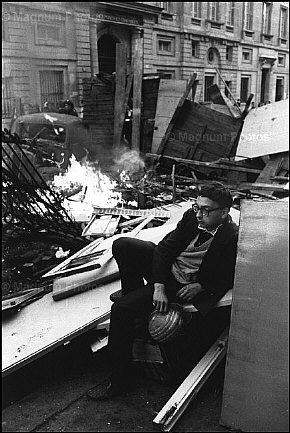
''I mentioned before that mainstream men’s fashion was forged in the military and then foisted on the male populace as a nation building technique. In anarchist circles, the black bloc has the same result. Obviously, no anarchist has orchestrated this, but the results are the same. Many anarchist men I meet are afraid to wear color, to be non utilitarian, to be sensual or outwardly express their sexuality. Anarchist men’s fashion seems permanently mired in street fighter and militia man, and with it comes the same vulgar credo as the army, “be prepared”. Is it worth it? Are the victories we’ve won with this tactic enough to justify the effect on our mansies?''
All of this violence was rightly denounced. And yet, somehow, the country didn’t descend into hand-wringing about how Quebec City’s image had been irreparably damaged in the eyes of the world. There was no talk of the historic city receiving a “black eye” on the world stage. … Here in Toronto, on the other hand, we are in the midst of a spasm of civic mortification. Over the weekend, I listened to radio reporters breathlessly tell listeners that tear gas actually had been used on the streets of “Toronto the Good” — as proof that the city was enduring some Cormac McCarthy-esque apocalypse. Egged on by thousands of media images of the same three cop cars burning…” ( Jonathan Kay )
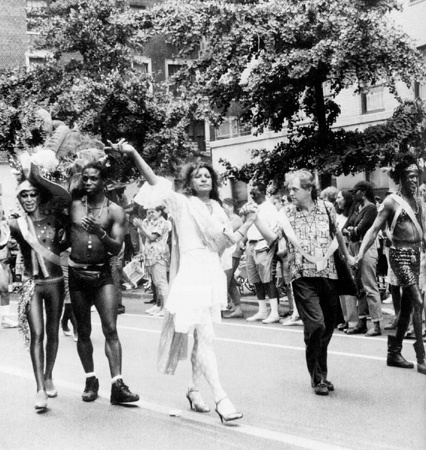
Stonewall Riot. ''I’m not convinced that the black bloc is that effective of a tactic anyway, most insurrectionists I read or talk to, admit serious, serious faults with the tactic in general, so much so it seems remarkable it keeps getting used! The only reasons that I’ve found supporting the black bloc is being disguised from the police and building team unity, however, neither seem that successful or at all guaranteed. ''
Many of the aspirations of the anarchists are to be found clad in Biblical language in the heretical sects of the middle ages and the sixteenth century. In fact, the underlying tenets of political anarchism are deeply rooted in the spiritual history of Western man. To free human relations from all artificial constraints; to live a social life without any central coercive hierarchy or organization; to be as free in society as in the supposed state of nature; to replace conventions by spontaneity, external sanctions by inner purity, and a legal code of justice by an unforced brotherhood of man. These are long standing dreams to which Anarchism pushes to their absolute limits, to absurdity, the idea of personal freedom that condemns absolutely all social arrangements that fall short of the lofty ideals.
of yours…. Subjects: Anarchism — Labor unions — Politics and government — 1880 – 1890 Political cartoons — United States — 1880 – 1890 Source: Frank Leslie\’s Illustrated Newspaper, November 13, 1886″]![anarchist6 Uncle Sam (to Labor Party Representative) "You did splendidly, my boy, for a first attempt, but, for your own good and that of the country, get rid of that dangerous companion [anarchy] of yours.... Subjects: Anarchism -- Labor unions -- Politics and government -- 1880 - 1890 Political cartoons -- United States -- 1880 - 1890 Source: Frank Leslie's Illustrated Newspaper, November 13, 1886](/wp-content/uploads/2010/06/anarchist6.jpg) The half measures and horse-trading, compromises, of representative democracy are seen by anarchism as betrayals of the ideal and are sometimes regarded as more abhorrent, because more hypocritical, than despotism itself.
The half measures and horse-trading, compromises, of representative democracy are seen by anarchism as betrayals of the ideal and are sometimes regarded as more abhorrent, because more hypocritical, than despotism itself.
MATT GURNEY: [To Jonathan]
Sure, and how many will be charged with anything? How many of those will get a sentence that isn’t a conditional discharge?
CHRIS SELLEY: [To Matt] Exactly. If the cops manage to catch and convict a lot of the vandals, they’ll be somewhat vindicated. But by yesterday afternoon this had the distinct air of police arresting people because they could.
MATT GURNEY: [To Chris] Exactly. The arrests aren’t for any law enforcement purpose, they’re just to nab people as a show of strength and hold them until things cool off.
TASHA KHEIRIDDIN: Six hundred people were arrested because a small group decided to act like asses and vandalize the downtown. I don’t blame the cops, I blame the black bloc idiots who rioted, and the lemmings who thought it would be cool to go check out the security fence and see what happens. Gee, what do you think would happen to you if you go down there after Queen Street gets wrecked?
The black blocers got exactly what they wanted — they made it look like Toronto is a police state because the cops clamped down after the initial rioting. But Toronto isn’t a police state, these hooligans made it so.
TASHA KHEIRIDDIN: I’m not saying people have no right to walk around. I’m saying that if the anarchists hadn’t rioted, people would have been able to walk around as they usually do. A billion bucks on security and there was still violence. Don’t you think the cops felt some pressure to contain it after the damage that was done on Saturday?
CHRIS SELLEY: [at Jonathan] But we’re not talking about police brutality. We’re talking about people being arrested for no reason. Just because it’s not as big a problem doesn’t mean it’s not a problem. If you’d been arrested Saturday night and held for 24 hours for taking video of the police, would you be making these arguments?
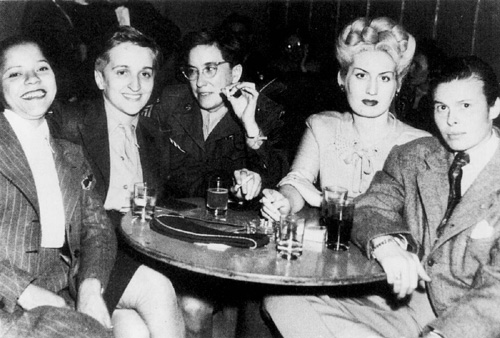
''I also think it was a huge misstep in general that anarchists have chosen the color black for our “national color” and the black flag as our “national flag”. Anarchism is the only philosophy which rejects the very foundation of the nation and all it’s bullshit, so why are we engaged in the same hierarchical nation building rituals? Flags, team building rituals, uniforms. Count me out. ''
Anarchism as a political slogan and a program was first put forward in the a840’s by the French artisan Pierre Joseph Proudhon. Hitherto, the word ” anarchy” had been used only as a term of rejection and abuse. Proudhon proudly embraced it; it was exactly what he believed in. Together with his onetime disciple the Russian nobleman Mikhail Bakunin, he became one of the founding fathers of the anarchist movement.
Proudhon speaks for all anarchists when he proclaims that ”the government of man by man, under whatever name it is disguised, is oppression,” and Bakunin echoes him: ”All exercise of authority perverts and all submission to authority ”humiliates”. Proudhon: ”I voted against the constitution, not because it contains things which I disapprove and does not contain things of which I approve. i voted against the constitution because it is a constitution”.
”One part of that agenda is to legitimize the “right” of violent demonstrators to break shop windows, vandalize banks, and generally raise hell during international meetings like the G-20. The black bloc seems well on its way to normalizing this aspect of their activities. We almost take it for granted now that international political meetings in any city will be accompanied by widespread property destruction, as occurred in Toronto.
Another part of the black bloc agenda is to demonize all efforts to restrain violent protestors as illegitimate and automatically suspect, and to condemn any police response as brutal, repressive, etc. Accepting these arguments would go some ways to encourage the rest of us to also accept that violent attacks on police officers by demonstrators are also a “normal” part of G-20 and similar international meetings. It may sound far-fetched, but the long-term strategic goal of the black bloc-types is likely to create such chaos at some future date that a determined anarchist formation could “kidnap,” figuratively speaking, an international meeting
One version of this scenario has been outlined in a paper published by the Transnational Institute, a vocal anti-globalization think-tank that has tried to portray the black bloc as “against violence.” A dearly-held wish of some radical ideologues (as the paper states) is for “the struggle that was born on the streets” — that is, the anti-globalization demonstrations seen in Seattle, Genoa and now Toronto — “to expand both in breadth and in depth” to the point that black-bloc-type activists can call for “workplace strikes” by workers sympathetic to their cause.
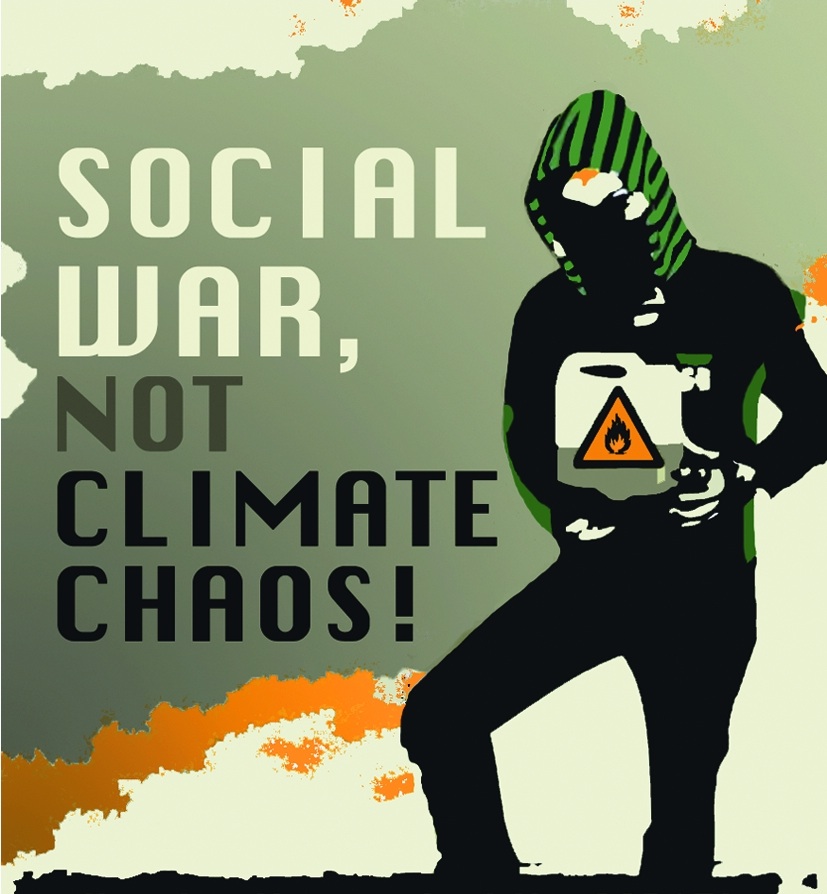
''Amongst thousands of people who want to save the world, we are getting together to march to the Bella Centre, but something feels wrong. The slogans just seem too familiar. “Traditional wisdom and new technology must go hand in hand.” Haven’t we been reading them on the ads all over town?''
The negations of anarchism leave a vacuum into which many different ingredients are drawn. Both Proudhon and Bakunin craved absolute independence of external constraint, but they disagreed in their conceptions of the nature of this independence. Proudhon, the thrifty, puritanical, peasant-artisan, saw anarchism as the self-respecting, frugal independence of the lower middle class, whose ideal and boast it is to live by its own efforts, calling no man master and owing no man anything. Marx, not unjustly called Proudhon’s anarchism the apotheosis of the ”petit bourgeoisie”.
”After the demonstrations in Goteborg, one of the Swedish newspapers wrote that in Europe, a whole generation had grown up that did not believe in the possibility of parliamentarism. This is absolutely correct. Against a background of triumphant cries about the victory over communist totalitarianism, the degeneration of Western democracy during the 1990s was visible to the naked eye. Since all the leading parties were in practice not even factions of the ruling class, but simply competing teams vying for the right to implement the policies of the financial oligarchy, and since power was held by a transnational bureaucratic elite that was not answerable even to the bourgeois class as a whole, it was extremely hard to speak of democracy in the normal sense of the word. This, however, indicates precisely the need for a struggle to revive democratic institutions. Not in order to reproduce the old culture of parliamentarism with all its defects, but in order to go beyond its limits, to take an indispensable step toward democratic participation.
On this level, the Nader campaign in the US and the Socialist Alliance in Britain have been important steps for the movement, despite all the problems faced by these efforts and their limited character, especially in the case of Nader. In Russia, the Movement for a Workers Party has the potential to play an analogous role. I am not calling for the struggle to be transferred from the streets to the field of electoral rivalry. Such a move would be suicidal. What is needed is for the struggle that was born on the streets to expand both in breadth and in depth. Our main field of battle must not be in elections, but in the factories. After Quebec, corporate chiefs openly acknowledged that while they were not especially afraid of street protests, they were very concerned that the spirit of the streets might penetrate the workplaces. We need to bring about precisely such a development of events….
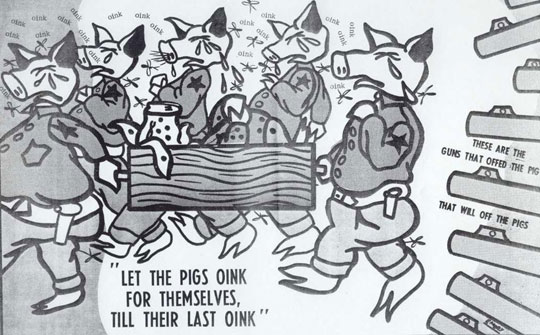
''This eclectic mix of radicalisms was not specific to the Panthers but rather ran through much of the New Left and subsequent New Communist Movement.''
…History has shown that workplace strikes are always more effective than street demonstrations, and that street actions are frequently more effective than motions moved in parliament – not to speak of the fact that it is impossible to buy off and corrupt thousands of activists, while with parliamentarians this happens quite often. A revolution begins, however, when the “streets” start to resonate with the “factories”. In these circumstances leftists, even when acting in the parliamentary arena, become spokespeople for the broader movement, since the voice of the streets starts to ring out from the parliamentary rostrum. ( Boris Kagarlitsky )
For Bakunin, the rootless, shiftless Russian aristocrat, it was the irresponsible independence of the Bohemian and of what Marx called the ”lumpenproletariat” , criminals, loafers, artists, impoverished intellectuals , unfrocked priests, and bankrupted gentry, in which class Bakunin placed great faith as a revolutionary force. Bakunin’s anarchism is the anarchism not of the ”petit bourgeois” who prides himself on being self-supporting but of the Bohemian aristocrat scrounger who is cheerfully unconscious of his own scrounging.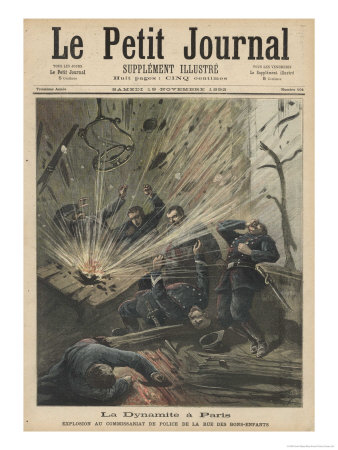
”JAIL SOLIDARITY RALLY! TORONTO CONDEMNS POLICE VIOLENCE
Monday, June 28th, 5:30 p.m.
Police Headquarters, 40 College Street (at Yonge Street)
SPEAKERS: Naomi Klein, Judy Rebick, Sid Ryan, Ben Powless, David McNally, Abeer Majeed, Dave Vasey, Deborah Cowen, Nate Prior, MDC, and testimonies from people who have been brutalized by police.
Over the past two days, police have rounded up and arrested hundreds of people. They have been denied access to lawyers, telephones, food and water, and held in deplorable conditions in makeshift steel cages. Many have been beaten in the streets and in their homes; shot at with rubber bullets and tear gas; some have been sent to hospital with severe injuries. Hundreds are still in custody as of Sunday night.
We need to get our people out. We need to take our city back from the armed fortress that it has been turned into.
We will let the police know that we will not tolerate the arrests, beatings and attempt to intimidate the people of Toronto. Our community stands with the people whose lives have been disrupted by the G20 and by police violence. We will demand that all those arrested be released, and released now!” ( Rabble.ca )


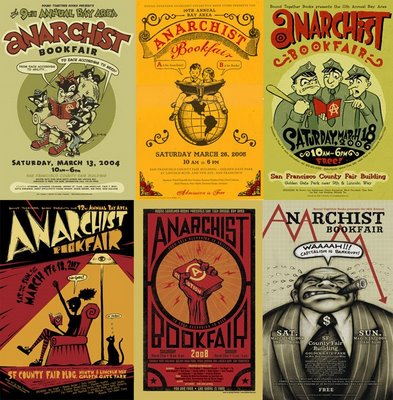
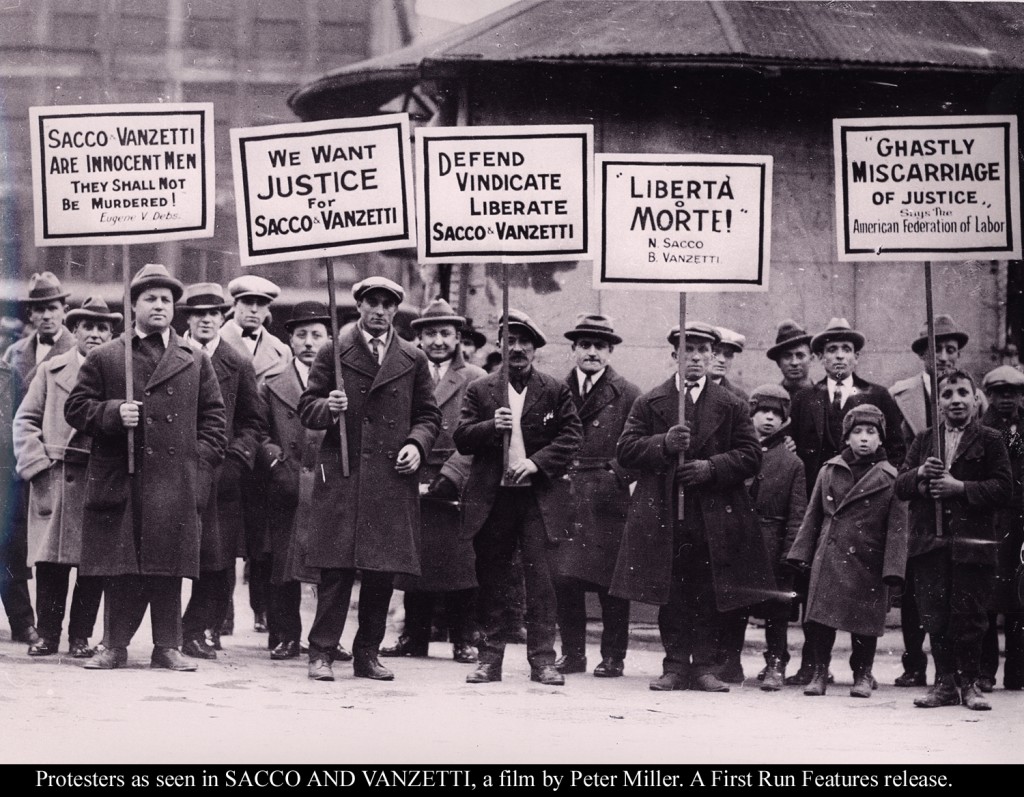



 COMMENTS
COMMENTS